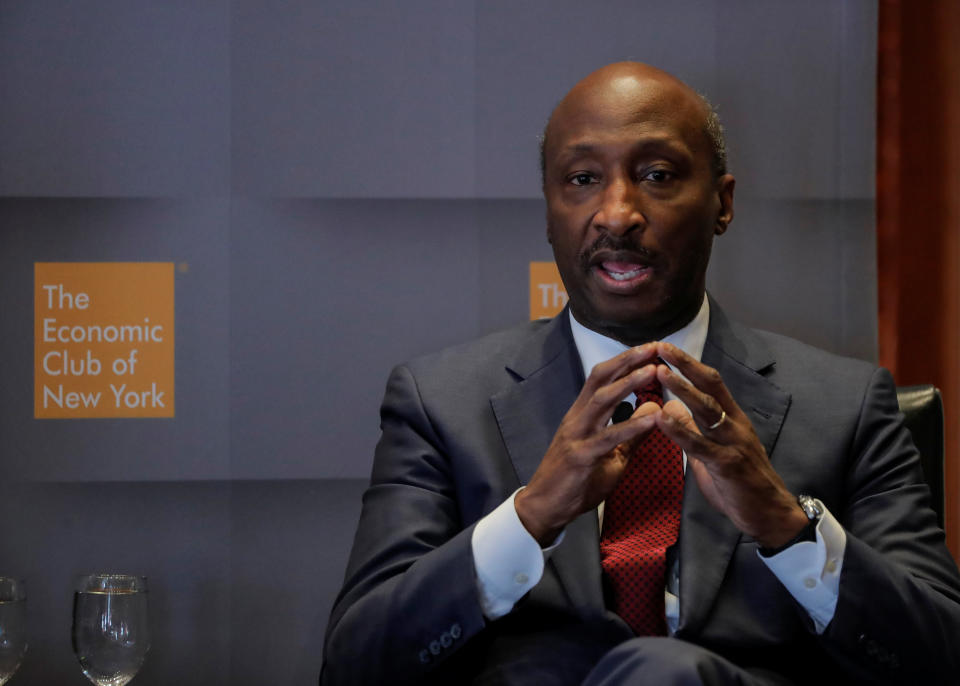Merck CEO sees a disintermediation in pharma like the cable industry
Kenneth Frazier, the CEO of pharma giant Merck (MRK), sees the possibility of a disintermediation in the pharmaceutical industry that can make drugs more affordable.
Speaking at the Economic Club of New York on Wednesday, Frazier said that one thing that the Trump administration is focused on is breaking down some of the opacity in the health care system by looking at the participants, their roles, and the relative value that they bring.
“I think at the end of the day, I’ll just be blunt here, I just don’t understand why we live in a world where 50% of the value goes into the supply chain,” Frazier said.
He pointed to the disintermediation of other industries like cable television as an example of what might happen in the pharma supply chain.
“You could actually look at the cable industry at one point where the content providers— if you were, Disney you had to pay a lot of money to get your content to the other side,” Frazier said. “I think that’s going to happen in this area.
“I mean no disrespect to anyone else in the supply chain, but I know how hard it is to make my 50 cents on the dollar,” he continued. “I have to invent something that’s never existed in the history of the world. And I have to ask my shareholders to be patient with their capital. I think that the system has got to change.”

Earlier in the conversation, Frazier touched upon the affordability challenge that many patients face.
“The reality of the world is for many people the affordability challenge is a very substantial challenge,” he said. “We talked about, for example, the fact that people won’t take their medicines. But they can’t take them if they can’t afford them. We have to find better ways of helping people in a market-based system to develop better ways for medicines. We have to frankly find a way for customers to take advantage of the negotiated discounts that are already occurring in the system.”
He added that one of the challenges for Merck is that their list prices are “very transparent.”
“The New York Times can write an article tomorrow with the list price of Keytruda in it. It doesn’t talk about all the discounts and rebates that occur,” he said.
According to Frazier, across Merck’s U.S. portfolio the discount rate is about 50%.
“So we get 50 cents and 50 cents goes into the supply chain,” he said. “We have to really ask ourselves:’What kind of system really makes sense? Where are the incentives how do we pass on more of those savings at the person at the point of sale?'”
—
Julia La Roche is a finance reporter at Yahoo Finance. Follow her on Twitter. Send tips to laroche@oath.com.
Novogratz: Cannabis stocks today are like cryptocurrencies in Dec. 2017
Langone: ‘For years, our political leaders have had their pants taken off by our trading partners’
Schwarzman: Nationalism and populism are the ‘biggest risks’ for the business community
Crypto investor Mike Novogratz says bitcoin is on the brink of a ‘Renaissance’

